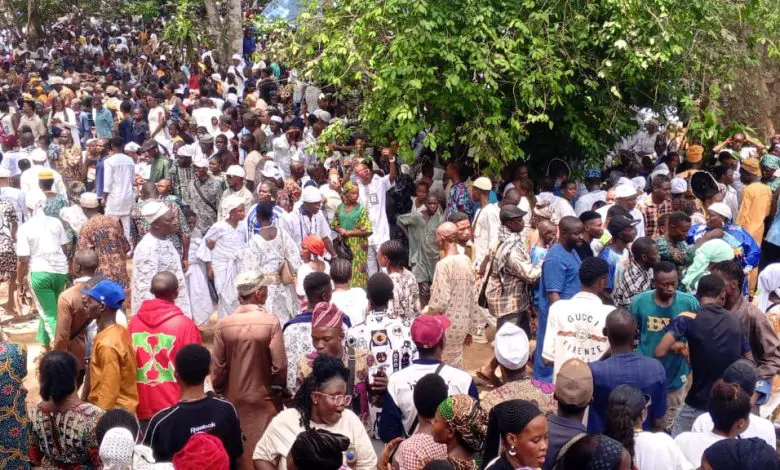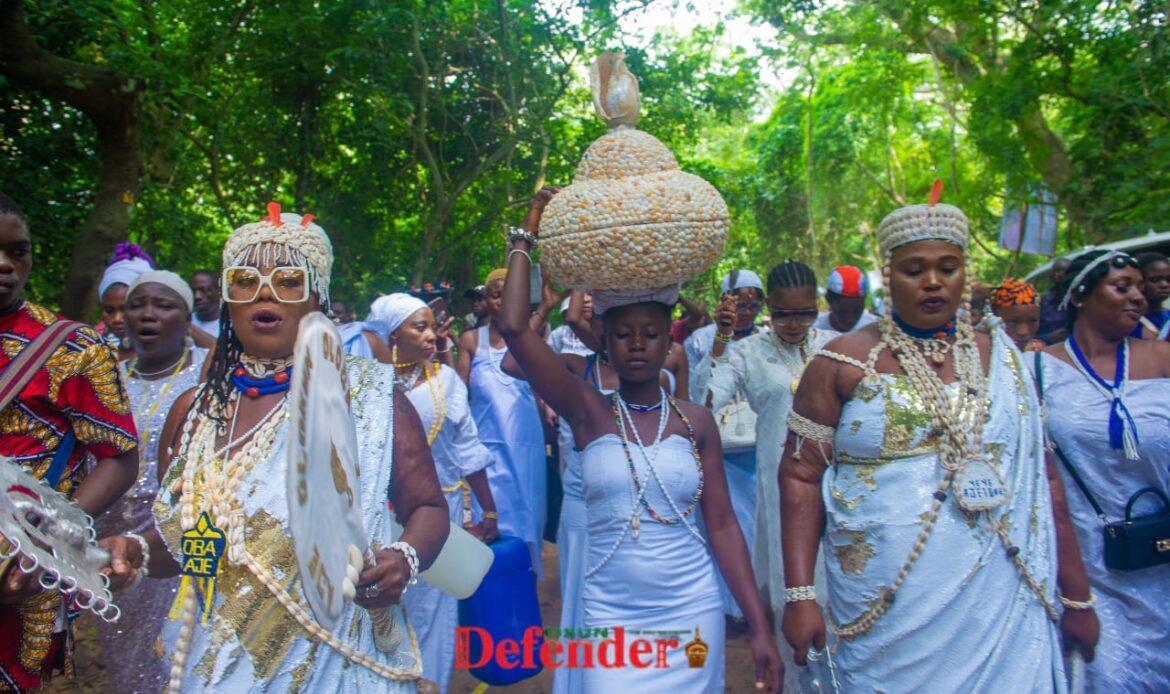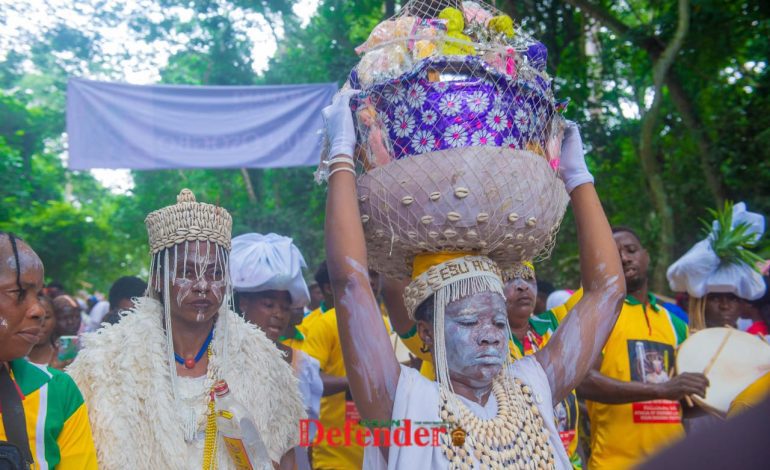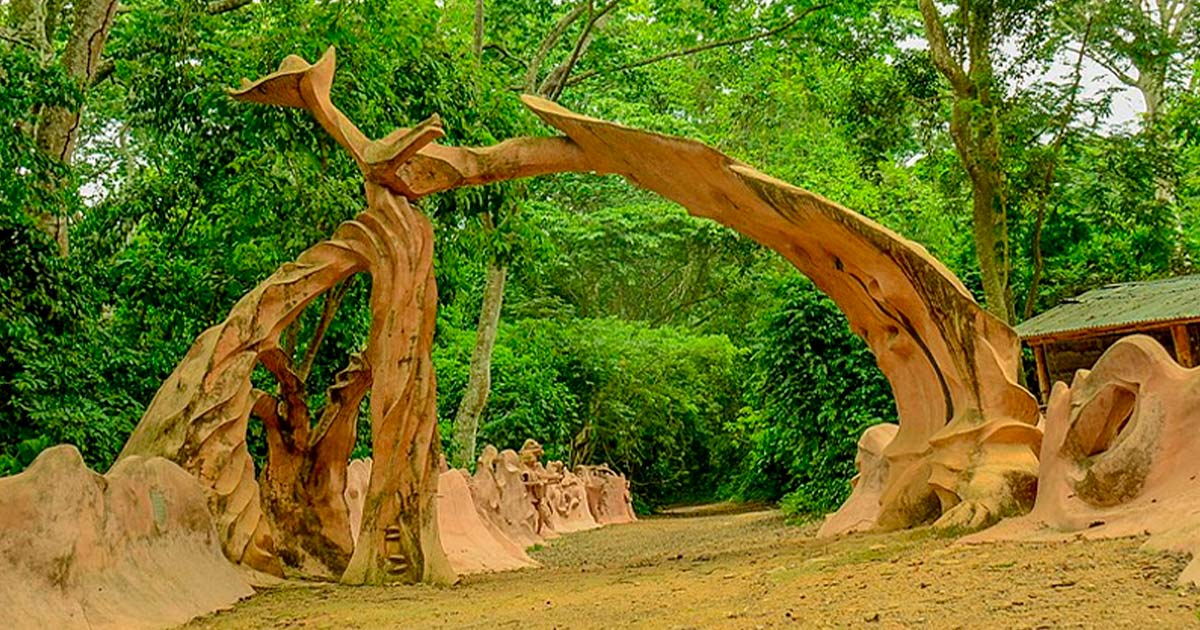
The Osun-Osogbo Festival stands as one of Nigeria’s most cherished cultural and religious festivals, attracting thousands of participants and tourists from across the globe. Held annually in Osogbo, the capital of Osun State, this festival celebrates the goddess Osun, the Yoruba deity of fertility, purity, and love. The 2024 edition of the festival was a more spectacular display of Yoruba heritage, combining tradition with modern festivities in a way that both honors the past and speaks to the present.
Historical Background of the Osun-Osogbo Festival

The Osun-Osogbo Festival has a rich history dating back over 600 years. According to Yoruba mythology, the goddess Osun saved the people of Osogbo during a time of great calamity. As part of the pact between the town and the goddess, the people vowed to honor her annually with a festival.
In return, she promised to protect and bless the community with fertility, prosperity, and good fortune. This pact remains at the heart of the festival, symbolizing the deep connection between the people of Osogbo and the sacred Osun River, where the goddess is believed to reside.
The festival is traditionally held over two weeks in August, and its origins lie in the pre-colonial era. The people of Osogbo gather to thank the goddess for her continued blessings and to renew their bond with her through prayer, dance, and ritual offerings.
Though the festival experienced periods of decline, especially during colonial times, it was revived in the 1950s by the Austrian artist and priestess Susanne Wenger, who dedicated her life to preserving the sacred Osun Grove. The revival transformed the festival into the global celebration it is today, and it has been listed as a UNESCO World Heritage Site since 2005.
Read: 10 Interesting Things About Osun Osogbo Festival
Key Rituals and Festivities
The festival was packed with sacred rituals that blend the spiritual and the celebratory. The events started with the Iwopopo, a cleansing ritual aimed at ridding the town of evil spirits and negative energies. Following this, the Ataoja of Osogbo, the town’s monarch, led a procession of chiefs and devotees to the Sacred Osun Grove.

One of the most significant rituals of the festival was the procession of the Arugba, the votary maiden. The Arugba, who symbolizes purity and carries the sacrificial calabash on her head, is central to the ceremony. The calabash contains offerings for the goddess, and the success of the ceremony is believed to depend on the maiden’s ability to carry out her task without faltering. Her journey through the town, accompanied by priests and priestesses, draws thousands of devotees who come to witness this symbolic act of renewal and protection.
In addition to the traditional rituals, modern elements such as music, dance, and the presence of brands like Goldberg Lager Beer have become a staple of the festival. In 2024, the beer company hosted an after-party that electrified the event with performances, dancing, and prizes. The blending of cultural celebration with corporate sponsorship highlights the festival’s evolution into a dynamic mix of old and new traditions, appealing to both locals and visitors.
The Osun Grove: A Sacred and Spiritual Sanctuary

At the heart of the festival is the Osun Sacred Grove, a lush forest by the banks of the Osun River. This grove is considered the spiritual home of the goddess Osun, and its preservation is a key focus of the festival. Devotees believe that the river has healing powers and every year, worshippers collect its water in containers to take home, believing it will bring them health and prosperity.
The Osun Grove is also a masterpiece of sacred Yoruba art. Decorated with sculptures and shrines created by Susanne Wenger and her followers in the New Sacred Art Movement, the grove embodies the artistic and spiritual legacy of the Yoruba people. Each year, the festival’s procession climaxes at the grove, where final offerings and prayers are made to the goddess.
Read: 17 Interesting Facts About Osun State
International and Cultural Significance
The Osun-Osogbo Festival has grown beyond its local origins to become a global cultural event. It draws visitors from across Nigeria and the world, especially from the Americas and the Caribbean, where descendants of Yoruba slaves have kept the traditions alive. For many international pilgrims, the festival is a way to reconnect with their Yoruba heritage and spirituality.
The festival has also gained attention for its role in preserving indigenous religious practices in the face of modernization and religious change. The growing number of participants reflects a resurgence of interest in African spirituality among Yoruba descendants and those interested in traditional African cultures.
As the Osun-Osogbo Festival 2024 ends, it remains an extraordinary celebration of Yoruba heritage, spirituality, and community. The festival serves as a ritualistic renewal of the pact between the town of Osogbo and the goddess Osun and stands as a symbol of resilience, unity, and cultural pride.
With each passing year, the festival grows in significance, drawing new generations into its embrace while reminding them of the enduring power of tradition. Whether through sacred rituals, artistic expressions, or joyful celebrations, the festival keeps the spirit of the Osun goddess alive, affirming the deep bond between the people and their cultural roots.
